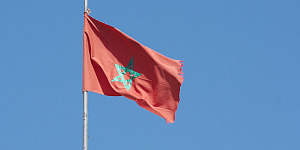Moody's Investors Service ("Moody's") has today changed the outlook on the Government of Morocco's issuer ratings to negative from stable. Moody's has affirmed Morocco's Ba1 issuer and senior unsecured bond ratings.
Moody's decision to change the outlook to negative from stable reflects the medium term impact of the pandemic on Morocco's fiscal strength, particularly in light of the subpar economic recovery expected given the economy's concentrated exposure to sectors and trading partners that have been hard hit by the pandemic. While the impact on public debt has thus far been in line with other emerging markets, the upward step in the debt burden continues a consistent trend since 2008. Set alongside the government's exposure to contingent liabilities from state-owned enterprises' (SOE) debts and an increase in credit guarantees as part of the pandemic response it raises concerns regarding the government's ability to arrest, and ultimately to reverse, the erosion in fiscal strength.
The Ba1 rating affirmation takes into account the continued affordability of the debt stock, supported by access to domestic and external funding sources at favorable terms in order to meet higher gross borrowing requirements, while persistently low energy prices and a solid foreign exchange reserve buffer contain external vulnerability risks.
Morocco's country ceilings remain unchanged. The local currency ceiling remains at Baa1, reflecting a large public sector footprint in addition to predictable institutions and reduced external vulnerability risk, balanced by lingering political risk as reflected in sporadic social protests and the potential flare up of tensions related to the Western Sahara territory. The foreign currency ceiling at Baa2 reflects the existence of capital controls, consistent with the pegged exchange rate system, and takes into account the gradual foreign-exchange rate liberalization policy initiated in January 2018, although that process will proceed at a slower pace than initially envisioned.





































